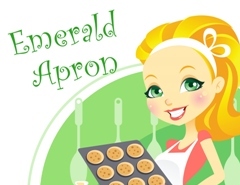By Dominique Browning of the Moms Clean Air Force
I don’t want to nag, though we all know moms are great at that. But I’m going to remind everyone that as of Monday, August 1, we have only FOUR MORE DAYS to write to the EPA in support of their NEW Mercury and Air Toxics Standards. This regulation will cut down the poisonous emissions from coal-fired electric plants. Fetuses, infants and toddlers are especially vulnerable to the harmful effects of toxic coal pollution.
Pro-polluters have been working overtime to cut funding for the EPA and block anti-pollution regulations. They’re spending millions of dollars on lobbying and campaign contributions–to protect their right to pollute!
Motherhood is powerful too. We have to make our voices heard.
Someday your children will thank you. Right now, you have to fight for them. My A Number One Reason will always be the same: my two beloved sons, for whom I will always fight like a mama bear, Alex and Theo. I’ll bet you feel the same way about yours.
Here is a GREAT REASON to write to the EPA now.
1. YOUR VOICE MATTERS. No politician wants to make a mom mad. The EPA needs to hear that you want it to protect your right to clean air. Sometimes being a great mom means being an active citizen.
2. WE’VE MADE IT EASY–AND YOU CAN FIND THE TIME. It is faster to write to the EPA than it is to change a diaper. Sometimes being a great mom means being an active citizen. Make your voice heard!
3. POLLUTION CONTROL MEANS MORE JOBS. Green jobs are rising dramatically. Retrofitting coal stacks with scrubbers means more jobs for people in the industry–and a stronger industry overall.
4. HOW DARE THEY HARM OUR BABIES! Fetuses, infants and toddlers are especially vulnerable to the harmful effects of toxic pollution. Childhood cancers are on the rise. So are asthma attacks. Pregnant women are warned against eating tuna fish because it is full of mercury. And polluters keep on fighting for their right to pollute.


















